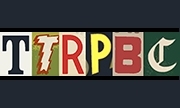Introductions, Author's Notes, Chapter Quotes and other additional words
Generally, how often do you read the metaphorical bookends to a novel?
I find that I very often will skip an intro by someone other than the author as it's usually little more than "hey, my buddy wrote this and I like it" and I don't usually need to know. Sometimes I will read the intro on a re-read, or if I really love the book, or if the introduction-writer is someone I have heard of.
Contrariwise, I almost always read author's notes. I like hearing about the process of crafting stories, or any addition insight into how the book came into being.
When it comes to quotes in between chapters or song lyrics in between sections, I find it depends on the length and the origin. If it's a short quote, I read it. If I know it's in-fiction quotes, I usually skip it. If it's a long chunk of song lyrics, I skip that, too. I'm pretty sure it's because I want to dive back into the tale and I think of quotes and lyrics as an unwanted commercial interruption.
What are your habits?

 Help offset server costs by donating. This is totally optional. Any overages will go to library fines or new books.
Help offset server costs by donating. This is totally optional. Any overages will go to library fines or new books.

Comments
Oh, I always read the intro. I can't think of any time when it's simply been 'here's a book by my friend'. They're often written about authors who are dead, for example, or remote. My version of Sword at Sunset has a brief intro by Jack Whyte, who himself wrote a whole series of historical books with his version of who Arthur might have been (and Merlin, who is actually his main character). It's pretty short, and mostly just talks about how he first encoutered Sufcliff's book, and how it inspired him - rather like @dr_mitch seems to have been inspired.
Most of the Strugatsky books have intros, talking about what life in the Soviet Union was like at the time of writing, and what kind of path the book took to publication (often torturous). Some of these are written by one of the authors, but not always.
My copy of Moby Dick had an amazing outro. It was short but greatly enhanced my understanding of the book.
Quotes I usually read, but dont pay a lot of attention to. These head up chapters, and I find they rather lack context until after you've read the chapter, so they're a bit misplaced. Sometimes they set the tone, though. I seem to remember Robert Lynn Asprin's Myth series had made-up quotes at the beginning of chapters that were quite funny - like "That's Entertainment!" - Vlad the Impaler.
Songs and poetry - I admit I often skip them. I never really developed a taste for poetry, and it mildly annoys me at times. I did read every poem in Gormeghast, though - those were good fun.
A bit like how, with a short story collection, when all else is equal, I'll read the shorter ones first.
Songs and poetry I skim, and read in detail if they either draw me in or I'm really into the book.
Drifting away from the main topic, in RPG books I nearly always skip the fiction, and only occasionally go back to it.
If the RPG fiction is short (I can see the end on one page), or if I'm really into the world, I'll read it.
I tend to agree that forewords by others easily slip towards eulogies rather than anything helpful, but I do usually read them anyway as sometimes they are fantastic.
End-notes I pretty much always read unless the first page or so is disappointing. But I start with the assumption that it's going to be good. There's a trend in historical fiction for some authors to use them as a kind of pre-emptive strike outlining places where they have diverted from known data, or else made a judicious choice between conflicting sources - but I'm less bothered than some of my esteemed friends about historical accuracy so wouldn't have minded anyway! But if your main aim is trying to divert picky critics who are into minute detail then it makes sense.
Songs and poetry I enjoy (as you all know from LoTR) and like to get into that. But to work, they have to contribute something to the plot, and to be credible given the culture described. (For example, the idea of Klingon opera is inspired, as you can easily see opera thriving amongst Klingons). I have read books where some high classy culture is supposed to just spin bits of random doggerel together, and that doesn't work for me - the style should fit the people. Again, Tolkien is a fine example of how to illuminate culture in a kind of multi-dimensional way using poetry style.